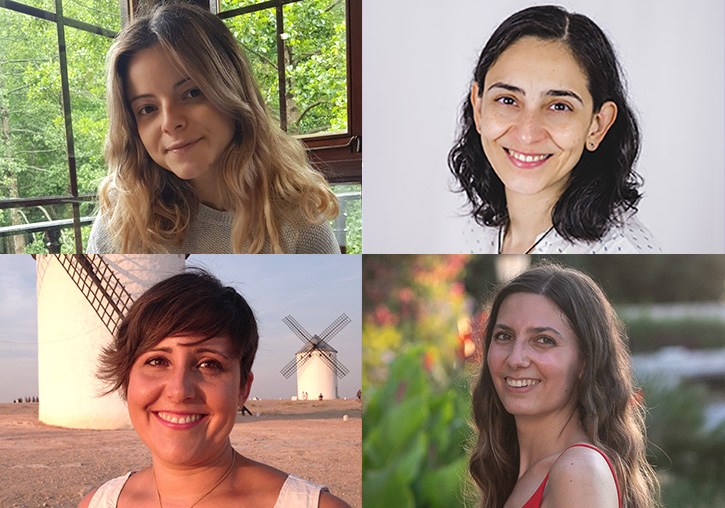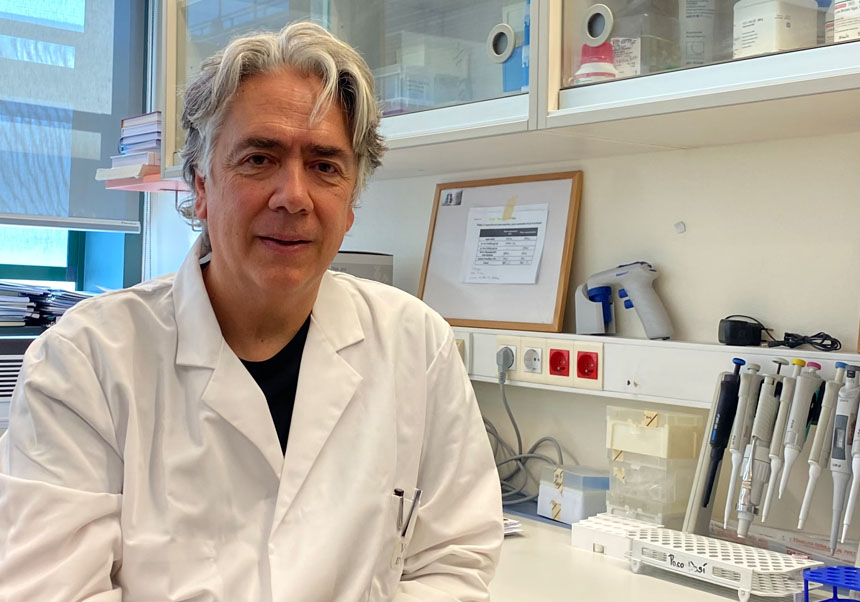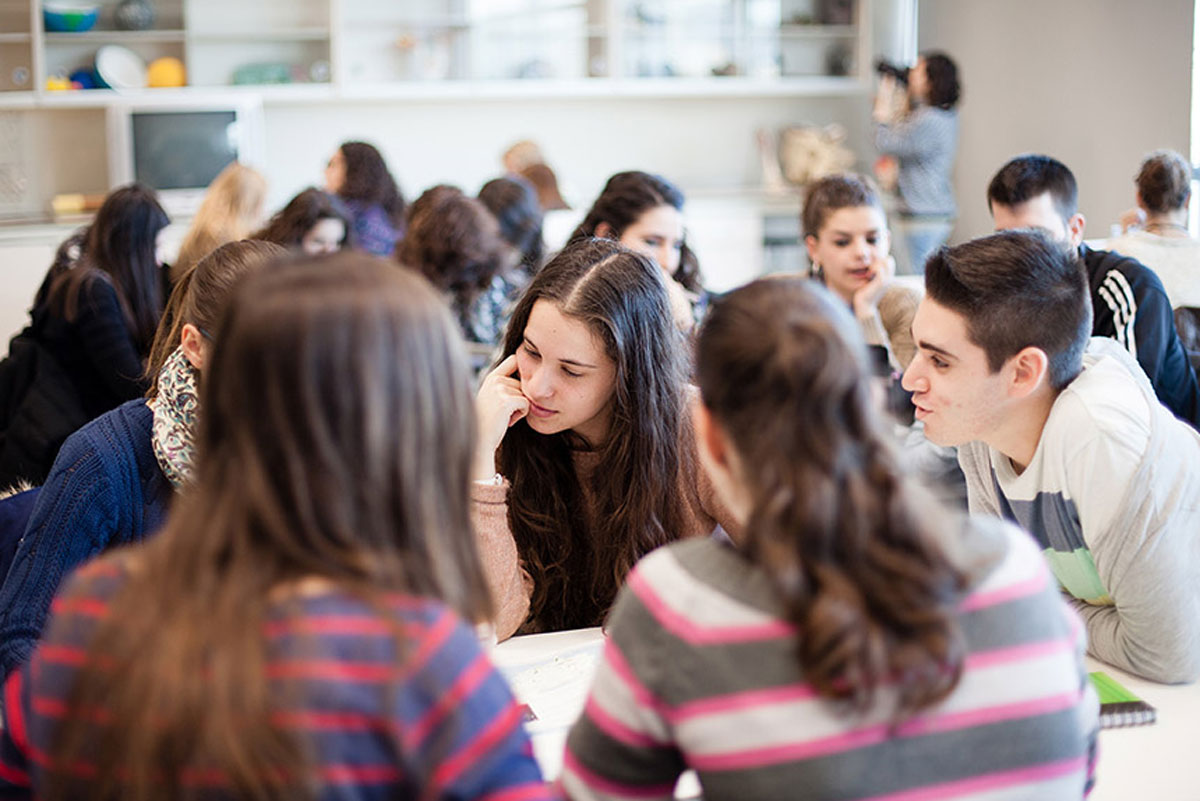The dissemination of mathematics seeks new paths from the university
- Scientific Culture and Innovation Unit
- September 30th, 2021

The activity in social networks, conferences and lectures of the professors of Mathematics of the University of Valencia Isabel Cordero and Anabel Forte, and the work of the graduates Ana Capilla and Elsa García are examples of how the scientific dissemination of this matter makes its way into the university world with a new generation. However, they note how disseminating mathematics is done mostly with “traditional” forms and is, above all, a masculine fact. It calls for more depth and new forms of extension of this knowledge.
Mathematics is a daily discipline, from the calculation of change in the supermarket to the use of computers or mobile phones, but, despite its relevance, it is little known by the general public. The lack of dissemination responds to factors such as the little involvement of some researchers, the lack of knowledge about the functioning of the media or the rejection of the public. In addition, dissemination is a masculinised world, “in which female disseminators opt for formats with less media impact”, according to graduate Elsa García, although this trend is changing.
As professor Isabel Cordero –from the Department of Mathematics– and graduate Ana Capilla point out, the “anumerism” present in society is related to bad experiences with mathematics in the educational stages, with its “loss of prestige” compared to other disciplines that are considered culture and it is frowned upon to ignore them – such as literature or cinema – and with the theoretical and practical complexity of mathematics to be understood and consumed. Thus, dissemination is the main challenge for research staff in order to make mathematics more accessible and attractive.
According to the Survey on the Social Perception of Science and Technology, carried out in Spain in 2020, the degree of interest in science and technology stands at 3.09 – on a scale of 1 to 5 –, behind medicine, the environment and economy, but ahead of sports or politics.
For Anabel Forte – of the Department of Statistics and Operations Research – there is currently a greater dissemination of mathematics, but unlike other areas in which she sees “many very young people resorting to audiovisual formats such as YouTube or TikTok” while in mathematics “I have been able to see people of all ages (more men than women, yes) trying to disseminate mathematics in more traditional media such as articles in the press or on blogs, on the radio or even in books”.
Despite this, she does notice a “growing interest” in having people who know mathematics appear in the media and highlights the role of Eduardo Sáenz de Cabezón (host of the TVE show “Órbita Laika”), Clara Grima (disseminator) and Santi García Cremades (host of the RNE program “Raíz de 5”). She herself has begun to collaborate with the À Punt radio program “Pròxima parada” that is broadcast on Friday afternoons at 4 p.m.
In this sense, Isabel Cordero also expresses herself, “activities are being developed to disseminate mathematics at more elementary levels, but there is still a long way to go in making areas of mathematics visible at deeper levels”. A task that is already being carried out in areas such as education or leisure, for example, with the increase in masters dedicated to the popularisation of science in general, with some focused exclusively on mathematics.
Another example of an activity for the dissemination and communication of mathematics are the TFGs carried out by the students Ana Capilla and Elsa García – and led by professor Isabel Cordero – on the dissemination and scientific communication in different areas of mathematics, in which they deal with questions such as the informative activity in this area or the importance of the role of the Scientific Culture Units (UCC+i) at the universities.
Regulations
The legislative framework indicates that it is the responsibility of the universities, researchers and teachers to carry out correct scientific communication and dissemination of mathematics, as indicated in article 44 of the Constitution or article 93 of the Organic Law of Universities.
















